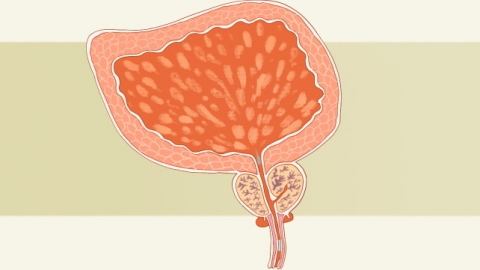Can medication cure benign prostatic hyperplasia (BPH)?
Generally, medication cannot cure benign prostatic hyperplasia (BPH). If discomfort symptoms arise, it is recommended to seek timely diagnosis and treatment at a regular hospital. Detailed analysis is as follows:

Prostatic hyperplasia is a pathological process characterized by abnormal proliferation of prostate tissue cells. Medications cannot reverse this state of cellular proliferation and therefore cannot achieve a curative effect. Commonly used drugs in clinical practice, such as α-receptor blockers and 5α-reductase inhibitors, can only alleviate symptoms through different mechanisms: α-receptor blockers relax smooth muscles in the urethra to improve difficulty in urination; 5α-reductase inhibitors inhibit the conversion of testosterone into dihydrotestosterone, slowing the progression of prostate enlargement and reducing its size. However, after discontinuation of the medication, the hyperplasia may continue to progress and existing hyperplastic tissue cannot be completely eliminated.
Patients should follow medical advice to take medications regularly and should not stop taking them擅自 (without authorization) even if symptoms improve. Regular follow-up evaluations of prostate volume and urinary function are necessary to monitor disease progression. Avoiding urinary retention, prolonged sitting, and consumption of spicy or irritating foods is important to prevent exacerbation of urethral compression. If the effectiveness of medication decreases, symptoms of difficulty urinating worsen, or hematuria occurs, timely medical consultation is needed to evaluate whether treatment adjustments are necessary.




